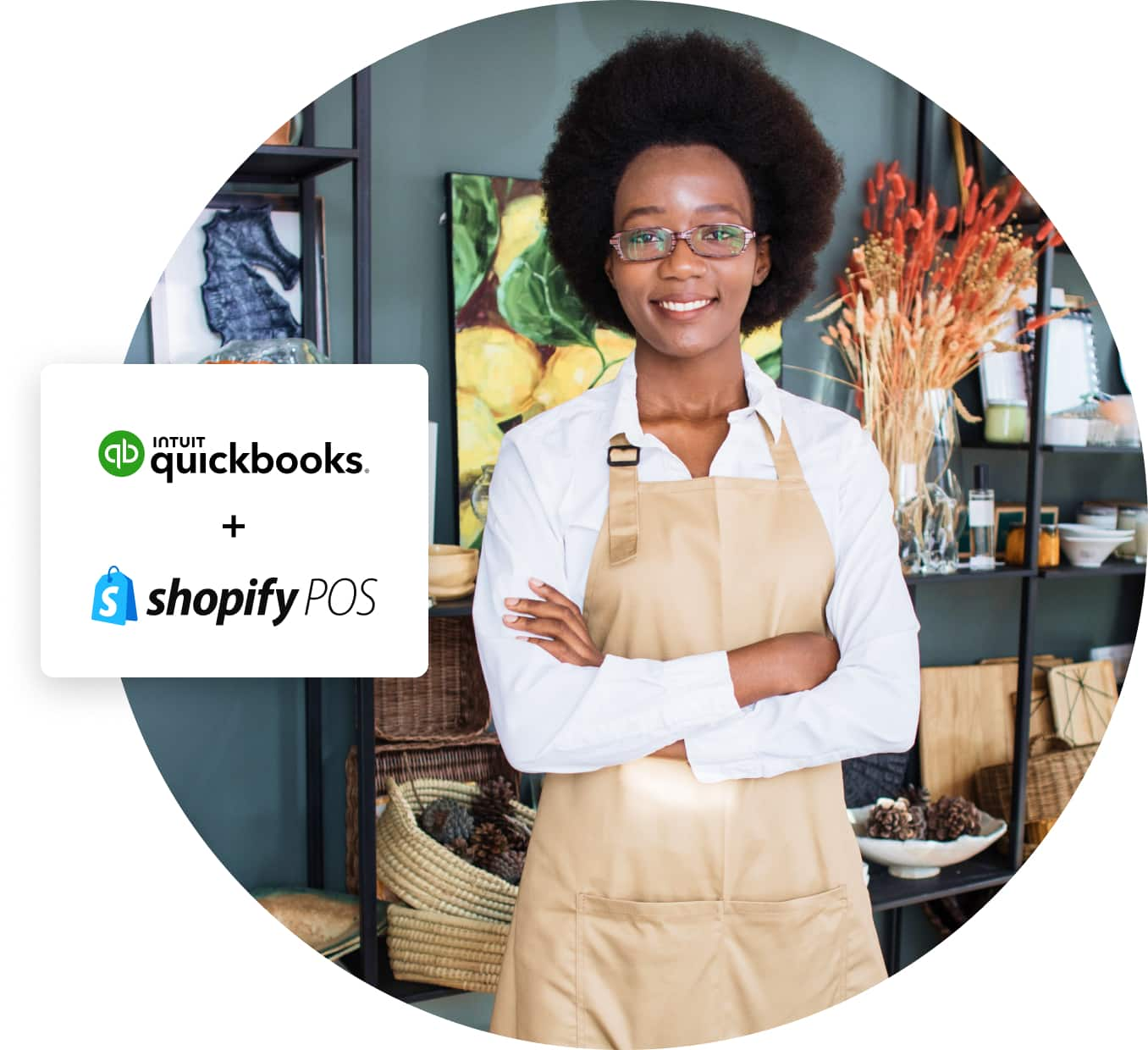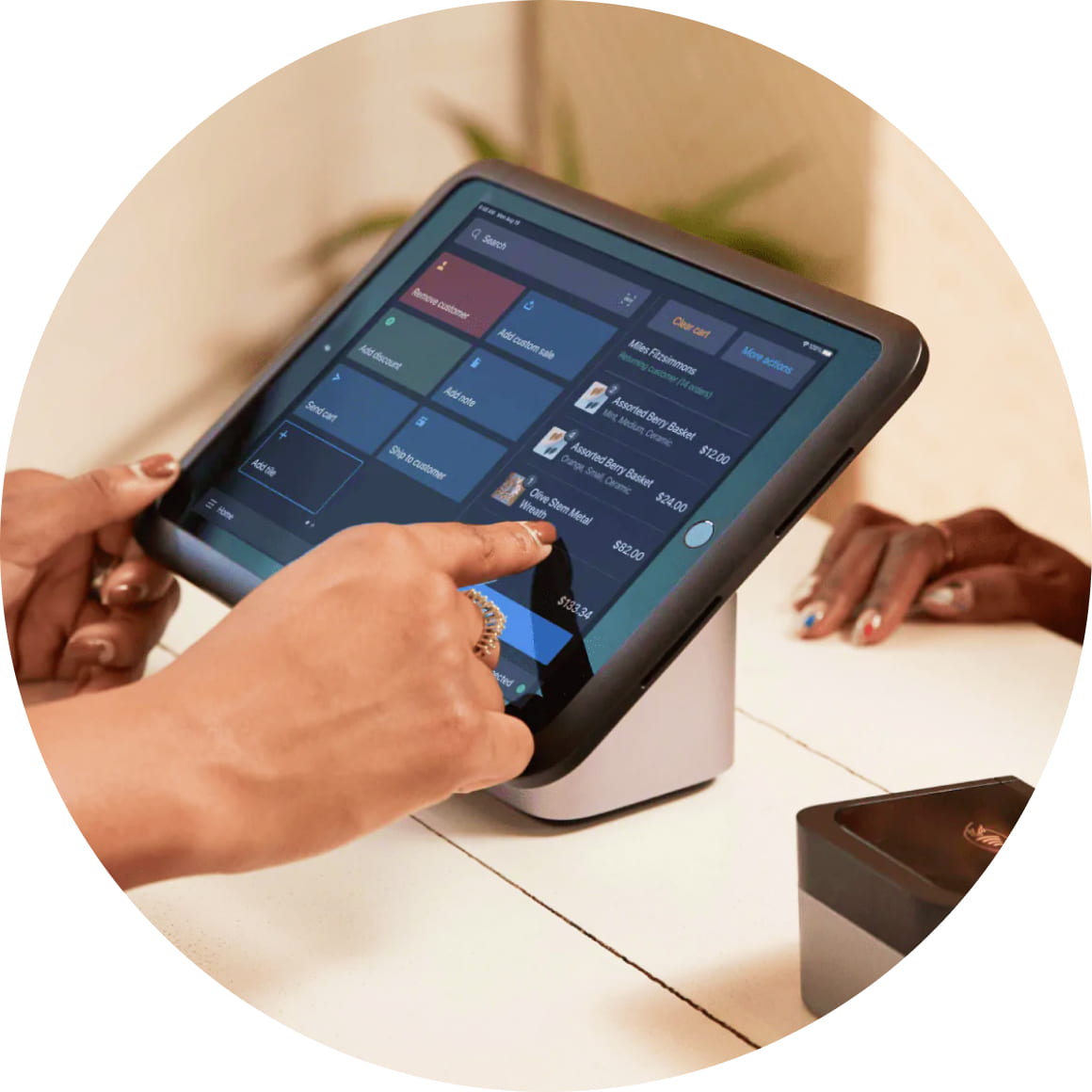Powerful POS. Smarter retail.
Looking for a new POS? QuickBooks prefers Shopify POS, a modern, integrated retail solution with tools to sell everywhere - all managed from one place.
Currently using QuickBooks Desktop POS? Learn about moving to Shopify POS

Multi-channel retail made easy

Online. In-store. All in one.
Cloud-based POS: Seamless cross-channel shopping for customers. Time-saving back-end automation for you.

Streamlined inventory management
Make your best decisions with real-time info on your orders, margins, and product performance.

Improve accuracy, reduce data entry
Sales, payments, inventory, and customer data automatically sync with QuickBooks Desktop.

Faster checkouts, happier customers

Next-generation-ready payments

Hardware for anywhere
See more. Know more. Sell more with Shopify POS.

Feel confident that you have a winning lineup of best-sellers to meet demand. Both online and in-store sales automatically update inventory in POS, so there’s no question about what’s in-stock or when to re-order.

Manage your entire shop in real time. View, track, and report on anything you need, from sales and inventory, to customer behavior, to P&L. All in one place. Anytime you need to know.

Set permissions to control staff access in your Shopify POS system. When they can do their jobs efficiently, they have more time to sell—and you can rest assured that your proprietary information is secure.
Keep shoppers coming back
Personalized experiences with customer profiles
Give your staff fast access to customers' past online or in-store transactions: they can tailor a unique shopping experience, every time.
Meaningful marketing
Gather contact details, then tailor marketing campaigns with exclusive discounts, deals, and sneak previews your customers will want to jump on.
Integrated loyalty incentives
Customize your loyalty program—in-store, online, and in social channels—with exclusive offers and discounts your customers love.